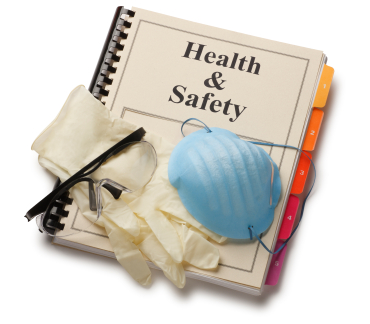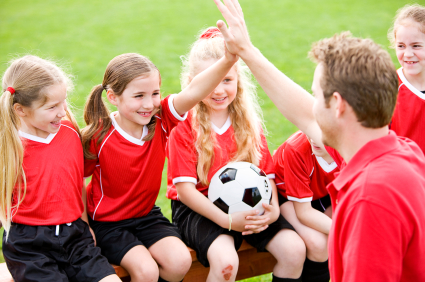The responsibilities of a coach
A responsibility can be defined as: - the things a coach must consider in order to carry out their role effectively.
Many expectations are put upon a coach. Some of these responsibilities are clear-cut, others less so. Coaching and playing sport should always be enjoyable, and to that end coaches should not be overburdened with expectation. Common sense and a good knowledge of safety and ethics will provide the basis of a responsible coach.
Professional conduct
Coaches should demonstrate model behaviour at all times. Their influence should always be positive and would usually mean working to a code. They must act in the most ethical and professional manner, showing a degree of honest, integrity and competence. They should be considerate of all individual needs and do their best to accommodate for everyone.
It is not enough to achieve a coaching qualification. Coaches should have a commitment to continual and ongoing learning or professional development. This could include:
- Attaining higher-grade qualifications
- Attending workshops and seminars
- Being aware of changes to their sport.
Legal Obligations
All coaches need to be aware of their legal responsibilities. We are all governed by laws in every day life and there are also many extra laws governing our actions and professional conduct on the field of play.
A coach must be aware of what is and what is not allowed in their sport, and also how the laws can affect their coaching practice.
Children protection - Coaching will spend a lot of time working with children and young performers so are likely to develop a closer relationship, becoming maybe a parent figure or friend. Therefore they need to be aware of what is considered inappropriate contact or behaviour that may breach child protection guidelines.
All coaches should undertake a Criminal records bureau (CRB) check, which goes through police records to see if any offences have been committed.
Insurance - Sport does not exist outside of normal law; therefore any common laws still apply in sport. For example in 1995 Manchester United footballer Eric Cantona was arrested for assault after he 'kung fu' kicked a fan in the crowd after being sent off.
In order to prepare for unforeseeable circumstances such as these the club or coach must ensure they are insured to protect them. Other situations were insurance could be needed is when players may considered themselves over trained and then get injured. The insurance would then cover the coach so he was not responsible for any injury if he can prove evidence that the training programme was tailored to the individual and suitable for their needs.
Health and Safety
A good coach should do a full health and safety check of the surroundings and participants before any activity starts. This can include checking for jewellery, appropriate clothing, ensuring participants are fit to take part e.g. not under the influence of alcohol/drugs.
They should also perform a risk assessment to ensure there are no hazards around that may cause harm to the performers such as glass on the court. As well as these checks, coaches should also follow a safe training structure when delivering their sessions. These include having a warm up and cool down to make sure the body is fully prepared for activity to reduce the risk of injury. A cool down will also aim to return the body back to a resting state as quickly as possible to reduce the effect of muscle soreness etc...
Equal Opportunities
All people should be presented with the same opportunity to participate as others. Sport's coach UK states that
'treating people as individuals and providing them with opportunities on the basis of their skills, talents and qualifications so that they are disadvantaged nor denied access on the grounds of their age, disability, ethnicity, race or sex or sexual orientation'
In order to account for this, some adaptation may need to take place. For example tennis could easily be adapted for wheelchair users and visual impaired students can play football with a bell in the ball so they can listen to which direction the ball is moving.
Knowledge of the coaching environment
Coaching is about developing someone's understanding and ability in particular areas. As well as helping them with the specific sport, it is likely you will be coaching the person too, therefore you need a good understanding of the coaching environment.
All training programmes should be individualised to help them develop to their maximum potential. Each session should be well organised and cover a range of skills and techniques. They should also include elements of progression and variation over a period of time.
In order to get the maximum out of the sessions they also need to be:
- Enjoyable
- Accessible
- Free from fear/harassment
- Positive
- Rewarding
- Challenging
- Motivating
A coaching code of practice
Coaches are expected to work to a code of practice so that performers can achieve the potential. Coaches should:
- Remain within the bounds of adopted codes of practice
- Maintain safe and secure coaching environments
- Make best use of all facilities and resources
- Establish good working relationships with all involved
- Control the behaviour of participants where possible.
Many sports governing bodies and sports coach UK have established a code of conduct for sports coaches.

